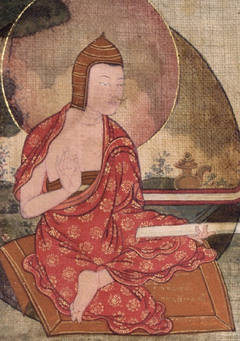Translations by Abraham Ta-Quan
English (75)
Abraham Ta-Quan, known to Vietnamese people as Chanh Nhan, is a student of Tsikey Chokling Rinpoche and a self-trained translator who currently lives in Vietnam. Since 2013, he has served as a Vietnamese translator for many Tibetan masters, including Drikung Chetsang Rinpoche and Adzom Gyalse Rinpoche.
Texts translated into English by Abraham Ta-Quan
Apang Tertön
by
Apang Tertön
by
Apang Tertön
by
Apang Tertön
by
Apang Tertön
by
Apang Tertön
Chögyal Pakpa Lodrö Gyaltsen
Dilgo Khyentse Rinpoche
Dodrupchen Jigme Tenpe Nyima
Drikung Kyobpa Jikten Sumgön
Dudjom Lingpa
Fifteenth Karmapa
Jamyang Khyentse Chökyi Lodrö
Jamyang Khyentse Wangpo
Jatsön Nyingpo
Karma Chakme
by
Karma Chakme
by
Karma Chakme
